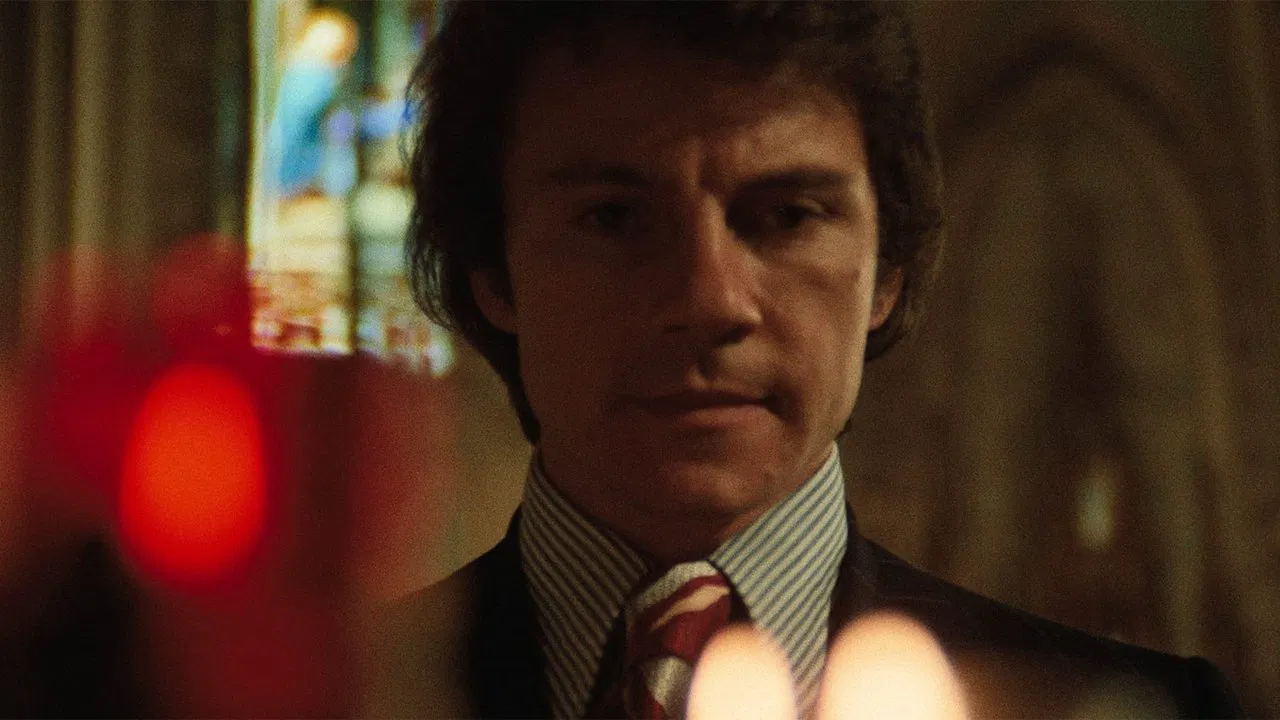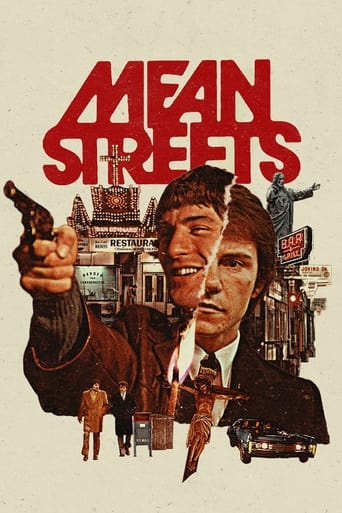

'Mean Streets (1973)' is seasoned with sprinklings of greatness, at times showing shades of what Scorsese would go on to do (i.e. 'Goodfellas (1990)'). Despite some solid acting throughout and a few entertaining sequences, though, the film generally falls flat thanks to the fact that there really isn't all that much of a plot and, as such, there isn't any real drama to latch onto. The result is a picture which feels much longer than it is and is also actually rather boring, floating along from set-piece to set-piece without any compelling connective tissue. It ends just as it seems to get going, too. 5/10
... View MoreI was completely bored watching this movie. The character of Johnny Boy is one of the most annoying characters I've ever seen on film and I have no idea why anyone would protect him, help him, or assist him in any way, ever! I wanted to shoot him on my tv minutes after he came on screen! And what is the plot of this story? The most annoying man on earth owes someone money and he doesn't' pay? I'd give it just one star, but the music was good.
... View MoreYoung into his career – only his third film – Scorsese was already in control of his maturing talent, his signature style was now on full display, delivering an absorbing portrait of Italian-American life of crime and redemption in the streets of New York (although most of the film was actually shot in Los Angeles).This force of nature of a film is powered by the outstanding cast, namely Keitel who plays a character which seems like an extension of the boy he played six years earlier in "Who's That Knocking at My Door", and De Niro in his unforgettable first role in a Scorsese film, playing Keitel's self-destructive mook of a cousin, Johnny Boy.Scorsese owed a lot of his gritty filmmaking style to directors such as John Cassavetes, but there are no films like "Mean Streets" before – it became the blueprint for modern movies. In 1967, he used contemporary music as a film soundtrack as opposed to a traditional score, an unheard of practice at that time and even before "Easy Rider" popularized that notion, it had since become a staple for many modern movies, here he used it again more effectively."Mean Streets" is rough around the edges, with bloody violence soaked in pop music – the antithesis of Coppola's glamorous gangster epic – and an early masterpiece from a director who will go on to make more.
... View MoreIf you find yourself frustrated that even as Johnny Boy keeps messing up Charlie still keep embracing and protecting him, Scorsese has succeeded. In more ways than one this is the rougher, meaner prototype of Goodfellas - but instead of glamourising the gangster lifestyle Scorsese plays it for what it is, and doesn't evoke any unnecessary personal growth. We see Charlie's catholic roots long before they thrust him into moral ambiguity and conflict, and we can immediately tell he has the a sort of intense responsibility for the members of his family that drive him to increasingly wave away their transgressions or faults. Even as they drive to what seems to be certain death, they are like a little family on a road-trip, laughing and joking with each other in the car as if nothing was wrong in the world. Scorsese has drawn on his own experiences of growing up in Little Italy to provide a rich canvas of characters and quarrels that unfold naturally within this world. While Goodfellas was immaculately structured with even freeze-frames to highlight define moments in the narrative, Mean Streets is polar opposite, with incidents and periods of inactivity peppering the anxious survival of Charlie's family and his aspirations in the Mafia. Fights might break out while you watch a show at the club. A man at the urinal might be shot in the back without notice. These acts of brutality and violence are heralded by an operatic score that gradually normalises their graphic nature. The real scare for Charlie is his off-cuff friend Johnny Boy, who makes his initial entrance into a hazy, crimson lit bar on the backdrop of The Rolling Stones' Jumpin' Jack Flash. The moment is magnified in the slow motion and Scorsese pushes into to the wary Keitel as if to say 'look here, trouble comes'. If his Catholicism hadn't already been compromised, it was now. Then he disappears for a good part of an hour and all we hear are whispers of his increasingly erratic behaviour, dodging loan sharks and spurning the lowly job that Charlie had worked so hard to get him. He finds him drunken on the roof and firing off shots into the night, and the piercing sound of the bullets is so effective because the rest of the soundtrack is silent - each pull of the trigger further ramps up the anxiety of Charlie desperately trying to reign him in. Keitel is so key; his increasing anger and indignation at each of Johnny Boy's missteps is underscored by this shame and regret as if it was all his fault. There is a scene where they trade blows on the staircase and where they finally come to blows, but like fighting brothers it all becomes okay the next day. And we see that although Charlie is not afraid to let the profanities fly, he knows that a little slap is going too far. He is like a father that spanks their child but immediately regrets it. He mouths off at Teresa, then right away looks as if he needs to run off and place his palm over a flame. His tough guy persona doesn't have any heart to it. There's a sort of awareness of the cinematic gangster that Scorsese shows with the handling of these characters. Whilst they fire guns and hustle guys all day long, they back away and up onto furniture to avoid getting near a caged lion. As Charlie becomes enchanted with the epileptic Teresa, he refrains from saying those three words because they represent sin and weakness and his uncle would forbid it. She replies with more smarts than expected: "Your reputation's safe", but it doesn't ever drag into self-conscious or affectionate territory. He knows, and she knows, that Mean Streets is all about reputation, and how it is undercut by other ideas like love and loyalty and family. They are not easily reconciled.
... View More